Robots, Time-Travel and Eternal Life: 9 predictions from a professional tech futurist
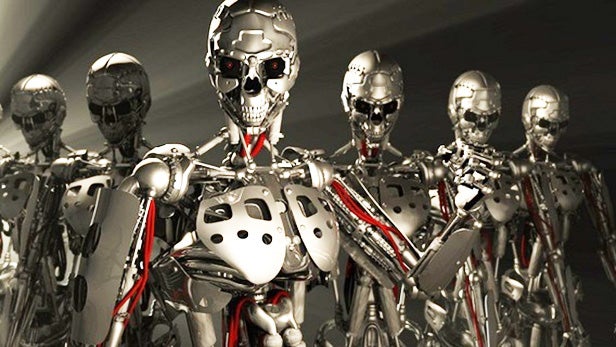
Predicting the future is a difficult gambit that too often involves tea leaves, crystal balls, and tightly-crossed fingers. But can anyone really see beyond the present day?
Dr Ian Pearson is a professional futurist, and sceptic of all things ‘Mystic Meg’. He’s been a full-time future-gazer since 1991, and claims 85% accuracy when it comes to 10-year predictions. These include music subscription services (1991), the wristwatch computer (1994), and even Elon Musk’s Hyperloop (2006). Far from being some tarot card wielding rent-a-mystic, he was even previously employed by BT as an actual ‘futurologist’.
A Doctor of Science with a degree in Applied Mathematics and Theoretical Physics, Pearson has had an illustrious career, which saw him spend four years designing missiles, as well as helping develop text messaging and the active contact lens. He now spends his days peddling predictions about the coming years.
We sat down with Pearson to see what an esteemed futurist thinks the road ahead looks like for humanity. But be warned – it’s not all pretty.
Conscious AI is coming, and it might kill us
Killer robots might be one of the more common science fiction tropes, but the idea is borne from science fact. According to Pearson, humanity could be usurped by circuit boards as soon as 2025.
“It could happen in the next 10 years,” said Pearson, when asked how far off the AI apocalypse might be. “We’re pretty much at the point where you could start doing evolutionary design projects that would come up with an AI which is of human level intelligence and conscious within two to three years.”
Pearson may be right; there’s no shortage of researchers trying to develop artificial intelligence. Even your smartphone has its own digital assistant – Apple’s Siri, Google’s Now, and Microsoft’s Cortana. But they’re all still pretty stupid, for now anyway.
“You could have a computer which is conscious and smarter than a human being within ten years,” the futurist tells TrustedReviews. “Other people would tell you that that’s absolutely impossible and that will never happen, but I really don’t understand why they believe that. I think it’s very likely that it won’t be just equivalent, and we will make some that are vastly superior.”
Pearson explains that there’s a good chance AI will eventually design its own offspring, and says we “could end up with the Terminator scenario”.
Maybe Elon Musk’s warnings were right?
Related: Drones in the UK: Where will they fly to next?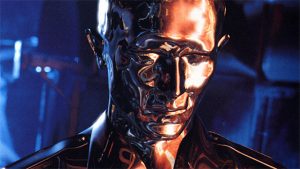
Killer robots scare you? How about liquid metal death droids…
Right, let’s say we do end up with the Terminator scenario. How bad can it be? Pretty darn terrible according to Pearson, who says the liquid metal T-1000 robot from Terminator 2 could become a reality.
For the unaware, T-1000 is a shapeshifting android assassin whose body is made from a liquid metal that lets the droid transform into deadly objects (read: not good).
“I’ve actually met the guy who runs a company called Robodyne, and he works out a technique to actually make that liquid metal robot,” Pearson reveals. “So other people have worked out how to make self-healing systems, other people have worked out how to make reconfigurable hardware, and so on.”
The futurist continues: “So a lot of the concepts that you see in the liquid metal Terminator 2, the T-1000; that sort of thing is well known to be entirely feasible. We could make that sort of thing in due course.”
Pearson says that we already know how to do it “in principle”, and that it’s just a matter of time waiting for the technology to come down in price. He also warns against blanket faith in science fiction, and says some technology we see in the movies just isn’t realistic.
“Watch a film like Iron Man or something like that, you see this sort of glowy thing that he has on his chest, which is somehow supposed to make energy,” he explains. “That looks pretty and it makes a nice film, but it’s not any great relevance to engineering, because there’s obviously no indication to how it actually works.”

AI is a legal headache waiting to happen
Whether artificial intelligence wipes us out or not is open to debate. What’s more certain however, is that we can eventually develop AI. And when we do, we’ll need solid legislation in place ahead of time – but that isn’t easy.
“Even in the field, there isn’t 100% agreement how the technology might play out,” says Pearson. “And because of that, it’s very difficult to make laws about it really. You could make a generic law that says you’re not allowed to make a machine with the intention of making it smarter than a human being, but you might overlook something.”
According to the futurist, there are so many different ways we might try to write AI laws, that any one of them “might have great big gaping holes.
“I don’t think we have the capability to make a set of laws which we be successful in preventing somebody from developing AI,” he continues, adding that even laws “don’t stop people doing it”.
“We’ve just seen teenagers hacking through into TalkTalk and causing quite severe problems. It’s against the law to do that, but they still did it,” he tells us.
Related: Life-changing wearable tech: It’s not just smartwatches and fitness bands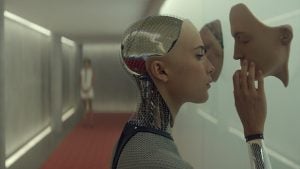
You could fall in love with a robot
It’s not all doom and gloom though. Pearson reckons there’s a good chance we’ll learn to love our AI counterparts – perhaps a little too much.
“People will fall in love with a robot even if it doesn’t behave exactly like a human being,” the futurist explains. “We see the evidence of that when people watch science fiction. If somebody sits down and watches Star Wars for example, they form a bond with C-3P0 and R2-D2, and when they get trashed they feel upset. They’re very obviously machines, but they still form a bond.”
Pearson’s right, and he’s not peddling an entirely original concept either. Plenty of science fiction flicks have dabbled with the idea of human-robot relations. Recent examples include Ex Machina (2015) and Her (2013), both of which saw the humble homo sapien get smitten with a circuit board.
Pearson compares it to how humans care for animals, but says the bond can go much further than the tenderness we feel towards a pet.
“A lot of people have got pet cats and pet dogs and love those, and would very easily love a robot that has got some sort of personality, or a picture on a computer screen which seems to have personality behind it,” he says. “They will fall in love with it. Whether you believe it, people will. And some people will want to have sex with them as well.”
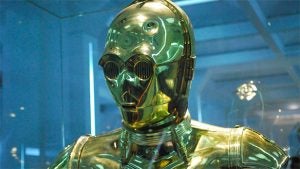
Developing AI isn’t safe – until 2040, anyway
In the grand timeline of the universe, humanity is still in its infancy. So maybe it’s wise to put the brakes on before we starting building our successors. But how long should we wait before it’s safe to work on AI?
“Around about 2040, 2045, some time after that it will be relatively safe to develop strong AI,” explains Pearson, warning about the perils of getting ahead of ourselves. “If we were to develop a very strong AI next year or the year after, I think it would be very risky. We would be trusting in luck that the machine doesn’t want to take over the world and doesn’t want to kill us all.”
He continues: “So if you do it too early, you’re relying on luck. If you leave it long enough, the luck becomes much less relevant.”
The problem isn’t with us though; Pearson admits that “most of us are aware of the risks” and can see the point in delaying AI research a little while. The real jeopardy lies in the possibility of someone taking matters into their own hands.
“You can’t stop some rogue regime or terrorist group or a lone mad scientist trying his best to develop this stuff all by himself,” says the futurist. “And it’s the sort of thing you could do in a teenager’s bedroom.”
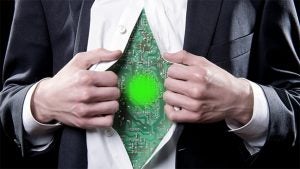
We’ll be augmenting our bodies soon
So if you can’t beat them, why not join them? It might sound like a crazy prospect, but Pearson thinks there’s a high chance we’ll eventually turn into machines ourselves.
“A lot of people are very enthusiastic about using technology to make their bodies better in a lot of different ways,” he tells TrustedReviews. “They’re almost queueing up around the block to get their arms chopped off so they can get bionic arms put on that because they see them as better.”
It’s not such a crazy thought; bionics is already a heavily developed field in medicine. Pearson references a number of existing augmentation technologies, including implants to treat Parkinson’s and hearing issues, retina implants, and limb replacements.
“We’re working on the neuro-network connections to allow them to control their prosthetic limbs,” he continues. “And this last week we’ve seen synthetic skin coming out which is more sensitive than human skin, and you could link that to the existing nervous system to give you better senses.”
“So if you get your arm chopped off, we could give you a bionic arm which actually works better than your one. So we’re heading down that road quite quickly,” the futurist adds.
Of course, that brings us back to the legal issues again, Pearson reminds us: “It does make it more difficult to do the regulations as well, because if you make laws against robots, do you also extend those to people who contain robotics?”
We sense a dystopian novel in the making…
Related: Holographic technology: How it’s going to take over the world
We can eventually live forever…sort of
What’s interesting about augmentation is that there’s very little stopping us from eventually replacing the majority of our bodies with technology.
According to Pearson’s estimates, we will be able to replace 98% of our body with synthetic parts by 2025 – everything but the brain, basically. And that, he says, is the key to eternal life.
“I think by 2050 onwards, we’ve got such a strong link between the human brain and the machine world, it’s entirely possible to make an exact replica of your brain outside of the machine,” the futurist explains, “which means essentially making a backup of yourself, so if one day you get run down by a bus, it doesn’t really matter, you’ve got a back-up.”
He continues: “I think it’s very likely to happen, and we will see some people who have died biologically who will carry on as robots and androids for essentially an indefinite period after that. It might not be forever, because there might be people who are concerned about population and environmental impact and all sorts of other things, so there might be restrictions on how long you’re allowed to carry on living after you’ve died.”
“I always make the joke that from 2050 onwards, death isn’t a major career problem,” Pearson adds.
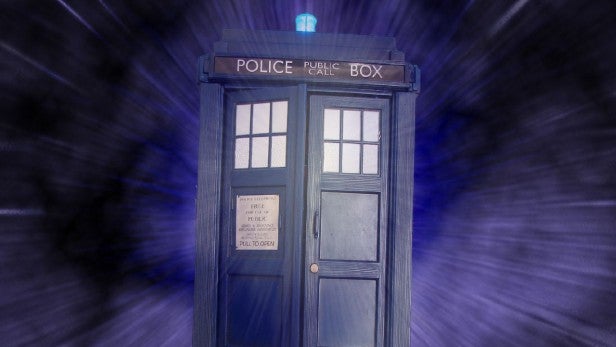
Time-travel will probably be invented by robots
Time-travel is a tricky concept, and Pearson isn’t convinced that we’ll ever resolve the difficult physics involved. But if we do, it’ll be the robots that crack it first.
“When we do figure it out in the real world, it will probably be a smart AI which will make this discovery,” says the futurist. “A super-smart AI which is actually fantastic at mathematics and physics and stuff, will understand it so well it might figure out a solution, and it’ll be the machine that will likely build the machine to do that time travel, long before people can understand it.”
Pearson even says that the concept “may be beyond human comprehension”, but still be possible thanks to the AI’s advanced capabilities.
Related: 7 ways tech can get you into trouble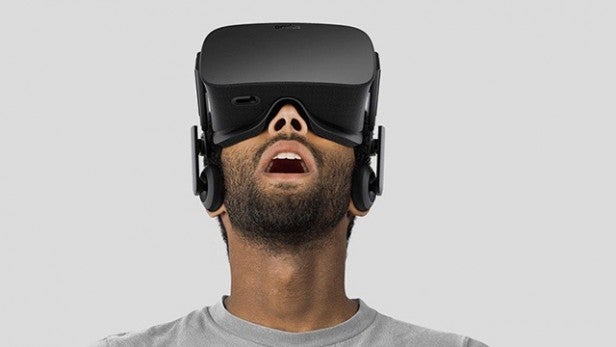
We’ll end up addicted to virtual reality
Today, we see humans addicted to all sorts of things, including computer games. If something is really enjoyable, some people will end up with a habit that’s difficult to kick.
Pearson says that same logic can be applied to virtual reality, a burgeoning technology that looks set to take off over the next year.
“You can live long periods in it, and I think some people will spend a lot of time in virtual reality worlds, if they’re any good,” he says. “Some people will prefer it to real life because they can control what they do better, and they can live like a king or a queen in virtual reality, whereas in real life they live in a horrible flat in the middle of London which is damp and ugly.”
The futurist describes how virtual reality could offer “a level of escapism” that will lead people down the dark path of addiction.
But Pearson says we probably won’t see a Matrix-style scenario where people are strapped to VR machines 24/7.
“I don’t think that you really can live your whole life in it, because you have to eat and you have to sleep and you have to go to the toilet and so on,” he says. “Those physical needs interrupt play.”
Do you have any predictions for the future of technology and humanity? Let us know in the comments section below.


